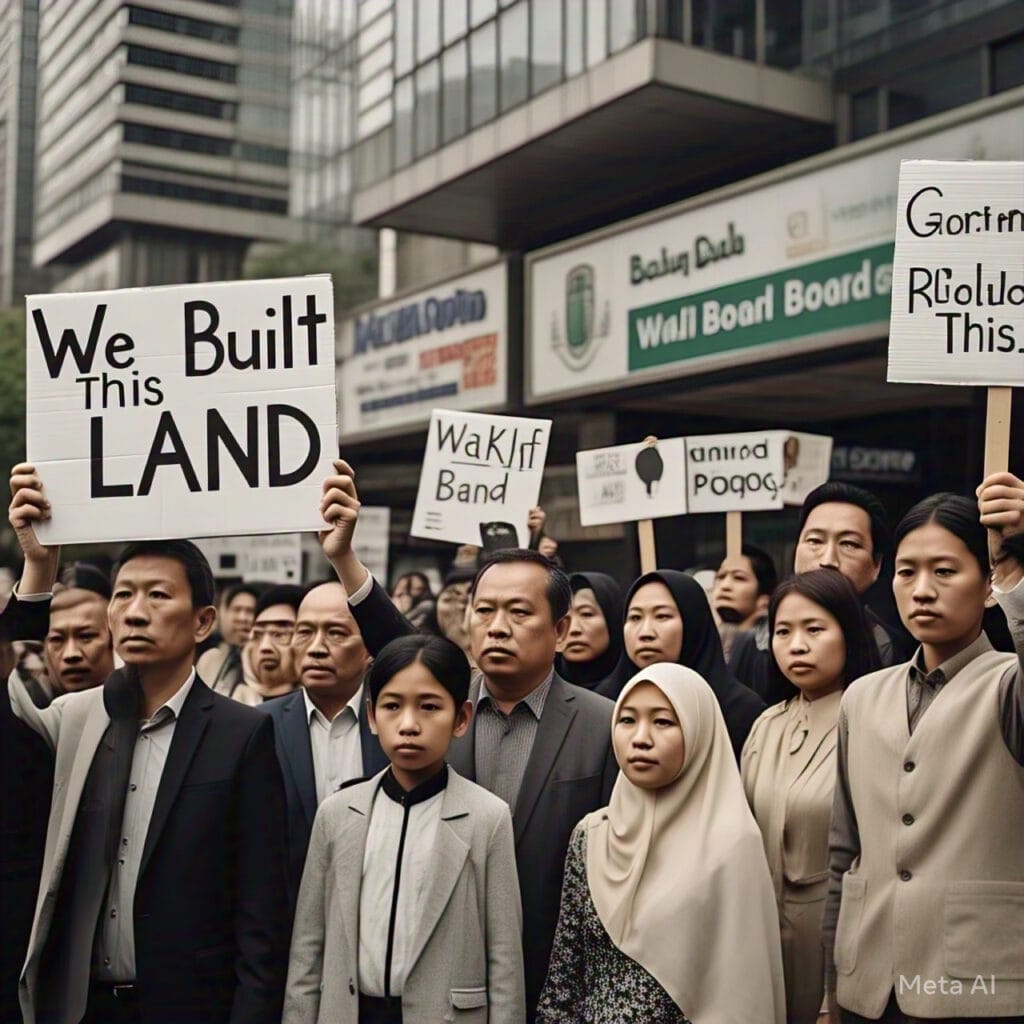The Indian political landscape is no stranger to paradoxes. But few are as revealing—or as dangerous—as the collision of identity politics and land rights currently unfolding in Kerala. At the heart of the storm is Union Minister Kiren Rijiju’s recent handling of the Waqf land dispute—a saga that’s now threatening the very foundation of the BJP’s Christian outreach in the state. His remarks in Parliament, viewed by many as evasive or ambiguous, have raised alarm bells among Kerala’s Christian community, particularly those affected by the controversial land claims made by Waqf Boards.
Yet the controversy masks a deeper and far more consequential issue: the pressing need to reform the Waqf Act, a relic of medieval jurisprudence that has been operating without accountability for decades. While Rijiju’s words may have ruffled feathers, the Waqf (Amendment) Bill is a necessary step toward transparency, secular equity, and protecting citizens—Christians included—from religious land monopolies hiding behind state-sanctioned impunity.

Understanding the Waqf Dispute
In the picturesque fishing regions of Munambam and Cherai in Kerala’s Ernakulam district, over 600 Christian families have lived for generations—raising families, building churches, and anchoring an identity that goes beyond caste and creed. And now, out of nowhere, they are being told their land might belong to the Waqf Board?
How did this happen?
The Waqf Board, established to manage Islamic religious endowments, has laid claim to these lands—claims that the Christian community believes are both historically and legally baseless. For many, this has become a flashpoint for religious encroachment masked as legal rectitude. That the dispute has now reached the courts is deeply unsettling for a community already marginalized and politically neglected.

Kiren Rijiju’s Parliamentary Performance: Misstep or Misunderstood?
When Rijiju, introducing the Waqf (Amendment) Bill, claimed that the issue was sub judice and therefore beyond political interference, many in the Christian community felt blindsided. After all, wasn’t it the BJP that had earlier promised support for justice in this very matter?
Critics argue that Rijiju’s response lacked the political courage and moral clarity required in such a sensitive matter. Church leaders, especially from the Syro-Malabar Church, interpreted it as a betrayal. The Kerala Catholic Bishops Council (KCBC), who had cautiously warmed to the BJP, is now questioning whether the party’s outreach was a matter of faith—or just another vote-bank gimmick.
But here’s the more uncomfortable truth: Rijiju was correct. The issue is sub judice. Any interference from the executive could be constitutionally inappropriate. The outrage, while understandable, is being misdirected.
Why the Waqf Bill Matters—Now More Than Ever
The Waqf Act of 1995, passed by a Congress-led government, handed sweeping powers to Waqf Boards with virtually no mechanisms for scrutiny or redress. In essence, it created a state within a state, where boards could claim land with minimal documentation, rarely facing challenge from local authorities. The Act assumes that once a property is registered as Waqf, its religious character is beyond question—a legal fiction that directly contradicts the constitutional guarantee of equal protection under the law.
It is under this outdated law that the Munambam Christian fishermen now find themselves fighting a battle that feels rigged from the start.
The Waqf (Amendment) Bill, which aims to correct these distortions, is a long-overdue step in restoring secular parity. It proposes stricter documentation, limits on unilateral land claims, and introduces accountability into a system that has operated like a black box.
Critics claim the bill targets Muslims. But who are the real victims here? If the Waqf Boards can arbitrarily claim land from Christians today, what’s to stop them from doing the same to Hindus, Dalits, or even the state tomorrow?

The Double-Edged Sword of Christian Outreach
The BJP has, in recent years, made deliberate overtures to the Christian community in Kerala—a strategic necessity in a state where the Muslim vote is largely locked in by the Left and Congress alliances. By engaging with Church leaders and supporting cultural initiatives, the party sought to break its image as a solely “Hindu” force.
But this outreach is walking a tightrope. The Manipur violence, the Palakkad Christmas incident, and now the Waqf land controversy have left Christians wary. The perception of selective silence or inconsistency is damaging the BJP’s trust-building process.
Still, it would be shortsighted to abandon the outreach. Instead, the BJP must double down on the Waqf Bill, not just as a policy tool, but as a litmus test for justice. By standing firm in defense of Christian communities against religious overreach by any group—be it Muslim, Hindu, or otherwise—the party can prove that it values principles over pandering.
The Left’s Opportunistic Outrage
Let’s not forget: the CPI(M), which now vocally criticizes the BJP for “betraying” Christians, was in power when many of these land disputes festered. The Left has long maintained an uneasy alliance with Muslim religious organizations, including those tied to Waqf Boards. Their silence during previous encroachments speaks volumes.
Today, when the BJP tries to legislate reform, the same Leftist factions call it communal. Is that irony—or hypocrisy?
Toward a Post-Communal Politics
If India is to progress as a truly secular, democratic republic, it must discard archaic structures that privilege one religious group over another under the law. The Waqf Boards, in their current avatar, represent precisely that kind of embedded privilege. Reforming them is not an act of anti-Muslim sentiment; it is an act of constitutional hygiene.
The BJP has a unique opportunity here—not just to win Christian votes, but to lead a new era of inclusive secularism rooted in fairness, transparency, and justice for all. But that will require more than lip service. It will require legislative resolve, moral clarity, and a firm refusal to bend to religious blackmail—whether from the mosque or the cathedral.
Conclusion: Support the Bill, Save the Outreach
Kiren Rijiju’s remarks may have created a political stir, but they should not distract from the broader moral imperative. The Waqf Bill is a necessary correction to a deeply flawed system. Far from undermining the BJP’s Christian outreach, it should be the cornerstone of it.
Support for the bill should be reframed—not as an attack on any one community—but as a defense of all communities from the tyranny of unchecked religious power.
The Christian families of Munambam deserve justice. So do thousands of others across India caught in the dragnet of land politics disguised as piety. Let’s not lose the plot chasing headlines. Let’s pass the bill—and move forward.